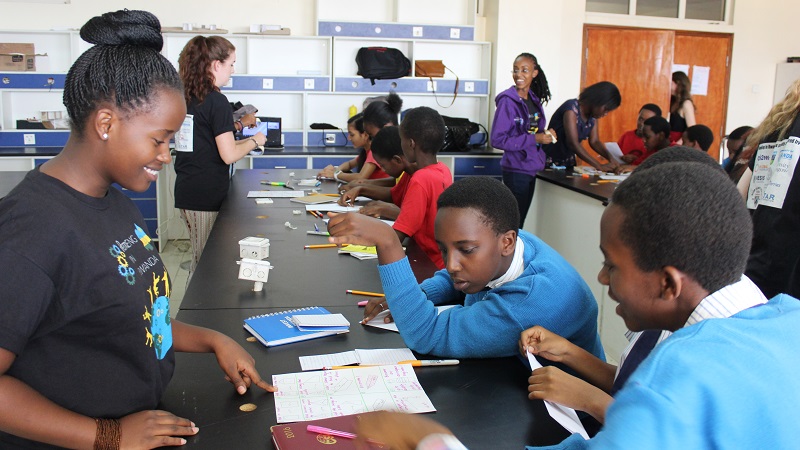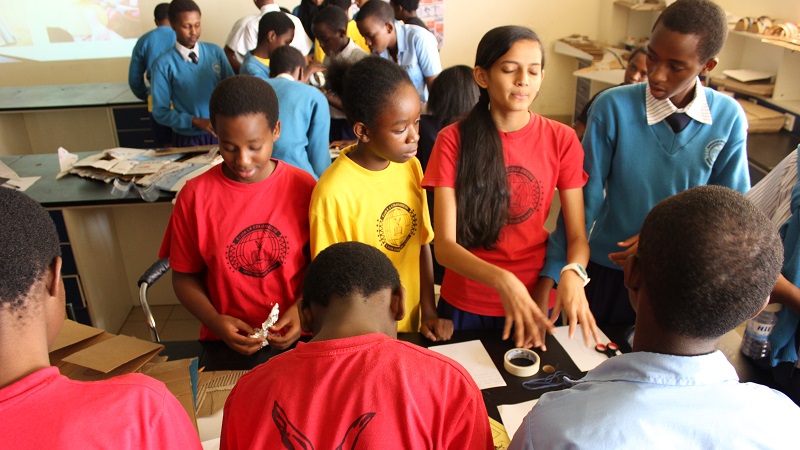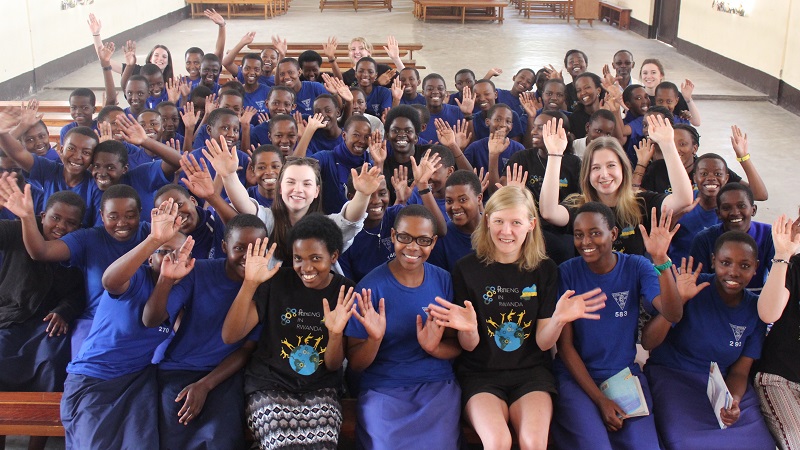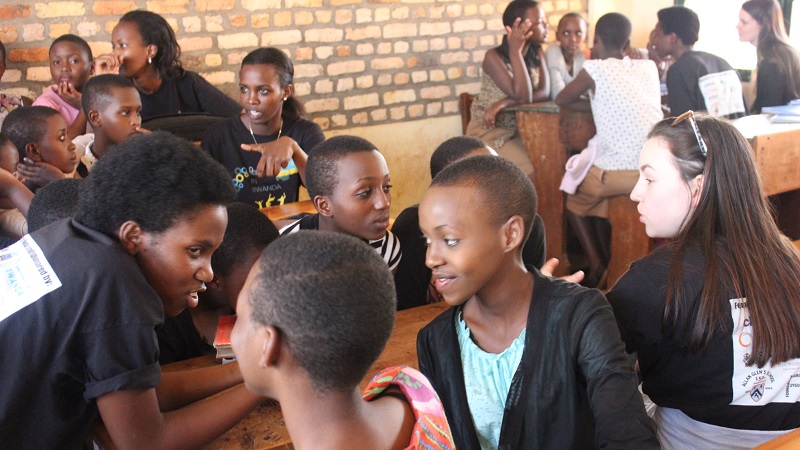Institution news
FemEng in Rwanda is an initiative led by Ellen Simmons, founder of the FemEng group at the University of Glasgow. She set up FemEng in 2013, to support and encourage females into, and through, engineering degrees. Ellen is a Student Affiliate member of the Institution, in her fifth year of a Masters in biomedical engineering.
The eight-strong team gained sponsorship from a number of engineering companies and academic institutions, and also successfully applied for a Group Project Award of £4,000 from the Educational Awards Committee of the Institution. After a positive trip, they aim to continue the project for the next four years, and have been invited to present outcomes to the Scottish Parliament.

The Institution award was made to assist in funding the partnership with female engineers at the University of Rwanda, including a visit in June to Kigali to run inspiring lectures and workshops. These brought together Glasgow-based and Rwandan engineering students, who worked together to encourage girls from Rwandan high schools to take up engineering studies. The aim of their workshops was to spark an interest in STEM subjects among high school girls in Kigali and inspire them to see a future career in engineering.
The eight members of FemEng in Rwanda – who are studying a range of disciplines, from aeronautical to mechanical and biomedical engineering – devised, refined and delivered workshops to over 500 high school students during their three-week stay in Rwanda. They kept a daily blog of the events and outcomes of the trip.

Ellen explained: “We made sure that each of the eight workshops was run by a University of Glasgow student, alongside a Rwandan university student and high school student. That way we ensured the UK team didn’t dominate, but shared knowledge and helped the participants find their connection with the subject matter, through lots of hands-on activities and problem solving, often designing and making products which played to their strengths.
“Many of the girls we encountered were unsure of the subjects they could or should study in order to meet the requirements of a degree course. The opportunity to meet and discuss such points, and support them when they expressed their thoughts about the future, was of great value.”

It was a highly successful first visit to Rwanda, during which existing links between the University of Glasgow and the University of Rwanda were strengthened. The group, which will recruit new members each year, aims to run the workshops for five years.
Ellen said: “As with many school students in the UK, a lot of girls who came to the workshops couldn’t define engineering at first, but they knew how to be creative and find workable solutions to challenges. And they understood more about engineering by the time they left!”

The group is working hard to promote its activities and outcomes, which they will do during freshers’ week and other university induction events, as well as working alongside partners which will enable them to expand their outreach in Glasgow and beyond.
In addition, they are holding a reception at the Scottish Parliament in September, which is free to attend. The group will talk about their achievements and present a report. MSPs both in Holyrood and in Westminster have already commended the activities of FemEng, and the team are looking forward to showcasing their work thus far.
If you would like to attend the reception, please email femengrwanda@gmail.com.
The group will also present information about their activities at the IESIS James Watt Dinner 2016, in the Radisson Blu, Glasgow on 7 October.

Ellen said: “We learned so much, from communication and presentation skills to the challenges of creating and pitching our workshop content to make sure all participants got as much value as possible. Our focus now is to refine the project, to make it as rich and relevant as possible, learning from the experience of this year’s trip. We are keen to attract and recruit new engineering students to join us, as well as discuss collaboration with other organisations.”
FemEng in Rwanda team members:
- Jess Níc Shuibhne - Aeronautical Engineering
- Ellen Simmons - Biomedical Engineering
- Christie Sherlock – Product Design Engineering
- Nina Birchard - Product Design Engineering
- Anna Robb - Product Design Engineering
- Catriona Holland - Mechanical Engineering
- Rebecca Hunter - Product Design Engineering
- Magda Kowalska - Computing Science
Find out more about FemEng.